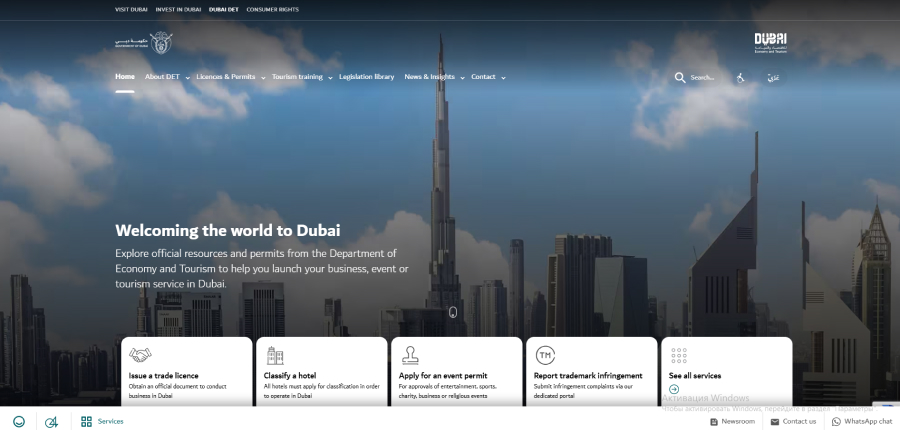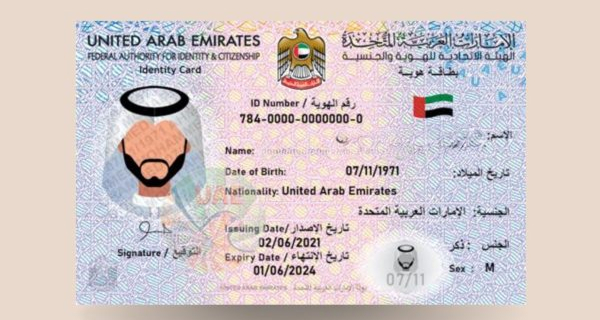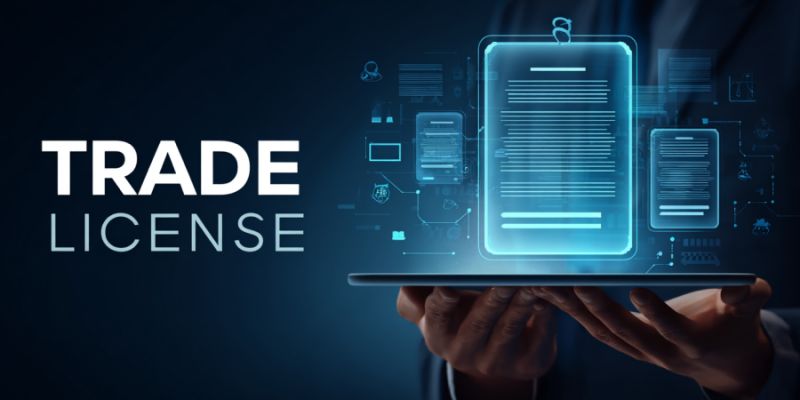How to add activities in trade license is a question I hear from business owners almost every week. In the UAE, your trade license defines exactly what you can and cannot do — and if you want to branch out, you can’t just start offering new services or products. The law requires you to update your license to include each new activity, and the process has to go through the right authority, whether that’s the Dubai Department of Economy and Tourism (formerly DED) or another emirate’s licensing body.

Adding activities is more than a formality. It’s the difference between operating legally and risking fines, or even suspension of your license. I’ve worked with clients who wanted to add just one extra activity — say, marketing services to a retail license — and others who expanded into entirely new sectors. The good news? If you know how the DED activity list works, understand activity codes, and prepare the right documents, it’s a straightforward update that can open new revenue streams without starting a whole new company.
Why Add New Activities to Your Trade License in the UAE
Basically, your trade license tells you what you can and can't sell or give. If an activity isn’t listed there, you’re stepping outside the legal lines, even if it’s just a small add-on to what you already do. The rules here are strict about that.
In my experience, people add activities for two main reasons. Sometimes it’s about growth — spotting a new income stream and wanting to grab it before someone else does. I’ve had clients who ran a small design studio, then realised they could make money offering printing services. Others started as retailers and moved into online sales. Adding the activity meant they could advertise, sign contracts, and do it all above board.
Other times it’s about keeping things simple. Running a second company for one extra service is overkill. Putting it under your existing license means fewer renewals, less paperwork, and no extra trade name to manage. It’s also cleaner for your reputation: if a customer or inspector looks up your license, it matches exactly what you’re doing.
What Is the DED Activity List and How to Use It
If you’re in Dubai, the Department of Economy and Tourism — what most people still call the DED — keeps an official list of every business activity you’re allowed to choose from. It’s not a random document. It’s the master list the licensing officers use when they create or update a trade license.
The DED activity list is more than just names of activities. Each one has a specific code and a short description of what’s included. For example, “Cleaning Services” and “Facilities Management” are two different entries with different scopes. If you pick the wrong one, you might find later that you can’t legally do part of the work you planned.
Knowing how to read this list can save you from costly mistakes, like applying for a general service when you actually need a specialised one, or missing out on an activity that could have covered more of your services under a single license.
What Are Trade License Activity Codes and How to Read Them
Every activity in the DED activity list comes with its own unique number — that’s the trade license activity code. Think of it as the ID card for that specific business activity. When you apply to add an activity, you don’t just write the name; you give the code as well. That way, the licensing authority knows exactly which service or product scope you’re talking about.

The DED activity code list can look a little intimidating at first. Some codes are grouped under broader categories, and others are very specific. For example, a general “IT Services” activity might be one code, while “Cybersecurity Consultancy” is a completely different one. Both live in the same overall sector, but the details — and legal permissions — are not the same.
When I help clients, I always double-check the description that comes with the code. This is where you find what’s included and what’s excluded. Skipping this step can cause headaches later if you discover the activity you added doesn’t actually cover the work you planned to do.
Examples from the DED Business Activity List and Codes
Looking at the DED business activity list in theory is one thing — seeing actual examples makes it much clearer.
Let’s say you run a small marketing firm in Dubai and want to branch into event management. The activity “Event Organising” has its own code in the DED trade license activities list, separate from marketing services. If you don’t add that code to your license, you won’t be able to legally manage or promote events.
Here’s another case: a retail shop selling electronics might want to add repair services. In the list, “Electronics Trading” and “Electronics Repair and Maintenance” are two distinct activities with separate codes. Without both, you can sell but not repair — or vice versa.
These examples show why it’s worth spending time with the trade license activity code descriptions before applying. The right code can open doors, while the wrong one can limit what you’re allowed to offer, even if your skills and equipment are ready.

Want to learn more about UAE business setup services?
Step-by-Step: How to Add an Activity to Your Trade License in Dubai and the UAE
In the UAE, if a business wants to add a new action, it has to ask the same group that gave them the original license. In Dubai, this is the Department of Economy and Tourism. In other emirates, it’s handled by their economic departments or, for companies in free zones, the relevant free zone authority.
The process starts by finding the correct entry in the official list of trade license activities. Each one has a code and a short description. That description should cover exactly what the business plans to offer. Choosing the wrong one can create problems later, especially if it limits the scope of what is legally allowed.
Once the right activity is identified, it has to be checked against the current license type. Certain activities cannot be added unless the license category itself is changed. If the activity is eligible, an initial approval request is submitted. In some cases, extra documents such as a No Objection Certificate are required.
After the approval comes through, the application to add the activity is filed with the licensing body. This includes submitting the necessary documents and paying the official fee. Once the change is made, the trade license is given again, this time including the new action along with the old ones.

Required Documents, Eligibility, and Timeline
To add an activity to a trade license, the licensing authority will request specific documents. The exact list can be different for each province and for businesses that are on the island or in a free zone. In most cases, the government wants to see a copy of the current business license, the planned activity code and description from the official activity list, copies of all partners' or owners' passports, and, if necessary, copies of local partners' Emirates IDs. For companies with external approvals attached to certain activities, additional clearance letters from those regulatory bodies may be needed.
Eligibility is tied to the current license type. Some activities cannot be added without changing the overall license category. For example, a commercial license cannot always be expanded to include professional services without an amendment. Authorities also review whether the new activity fits with existing ones to ensure compliance.
The time frame for processing is often short — in many cases, the update is completed within a few working days once all documents are in order. Delays occur mainly when information is missing or additional approvals are required.
Where to Submit: DED and Other Licensing Authorities
The request to add an activity goes to the authority that issued the license. In Dubai, that is the Department of Economy and Tourism (DET), often still called the DED. Applications can be sent online through the DET portal or app, or handed in at one of its customer service centers.
In Abu Dhabi, the service is managed by the Department of Economic Development, while each of the other emirates has its own economic department. Most of them provide both online and counter services.
Companies set up in free zones deal directly with the free zone administration. The steps and costs are not always the same as on the mainland, so the requirements published by that specific authority should be checked before starting.

Fees for Adding Activities to Trade License in the UAE
The cost of adding a new activity to a trade license is not fixed across the country. Each emirate sets its own structure, and fees can also differ between mainland and free zone jurisdictions. In Dubai, the Department of Economy and Tourism applies a government service fee along with administrative charges. The base government fee is often in the range of AED 600 to AED 1,000 for most activities, but activities that require extra approvals from other authorities may have higher costs.
In other emirates, the amounts can be lower or slightly higher depending on the sector and the activity chosen. Free zones may include the update fee in an annual package or charge separately for it. Some also add a processing fee for issuing the amended license document.
It's important to think about any extra costs that come with getting papers translated, approved by regulators, or notarized, since these aren't always included in the price given for the activity update itself.
Trade License Activity Update: Common Errors to Avoid
Problems usually arise when the chosen activity does not match what the business actually does. The wording in the activity list can be similar for different entries, but the permissions they grant are not the same. A wrong choice might limit the services allowed or create the need for another change later.
Compatibility is another area where applications fail. Certain activities can only be added to specific license categories, and some combinations are not permitted at all. This is why the activity list and license type should be reviewed together before starting.
Applications are also delayed when documents are incomplete or out of date. Authorities will not accept copies of passports, Emirates IDs, or trade licenses if they have expired or are unclear.
A final point is external approvals. Activities in areas such as healthcare, education, or transport often require clearance from other government bodies before the licensing department can make any changes. The procedure may be stopped completely if this step is skipped.
Conclusion
Adding new activities to a trade license isn’t difficult, but it does follow specific steps. The main points are simple: pick the right code from the activity list, make sure it’s allowed for your current license type, and have all the required documents ready.
Rules, fees, and timelines change slightly from one emirate to another, so the instructions from the licensing authority that issued the license should always be the first reference. If an activity needs outside approval from another government body, it’s better to confirm that before starting rather than risk having the application stopped midway.
Once the update is complete, the license will show exactly what the business is allowed to do, giving clear legal coverage for the new services or products.
It’s the list Dubai’s licensing department works from. Every activity on it has a code and a short explanation. When applying for an update, the authority will use that code to identify exactly what you want to add.
Yes. If they match your current license type, they can go in together. Each still needs its own code, and you pay for each one.
There isn’t one fixed fee. Dubai’s charges often start in the hundreds of dirhams, but some activities need outside approvals that add extra costs. Other emirates have their own price structures.
Sometimes, but not always. Certain sectors can’t be mixed unless the whole license category changes.
For some cases, yes — especially if there are other shareholders or if another authority must approve the activity.
